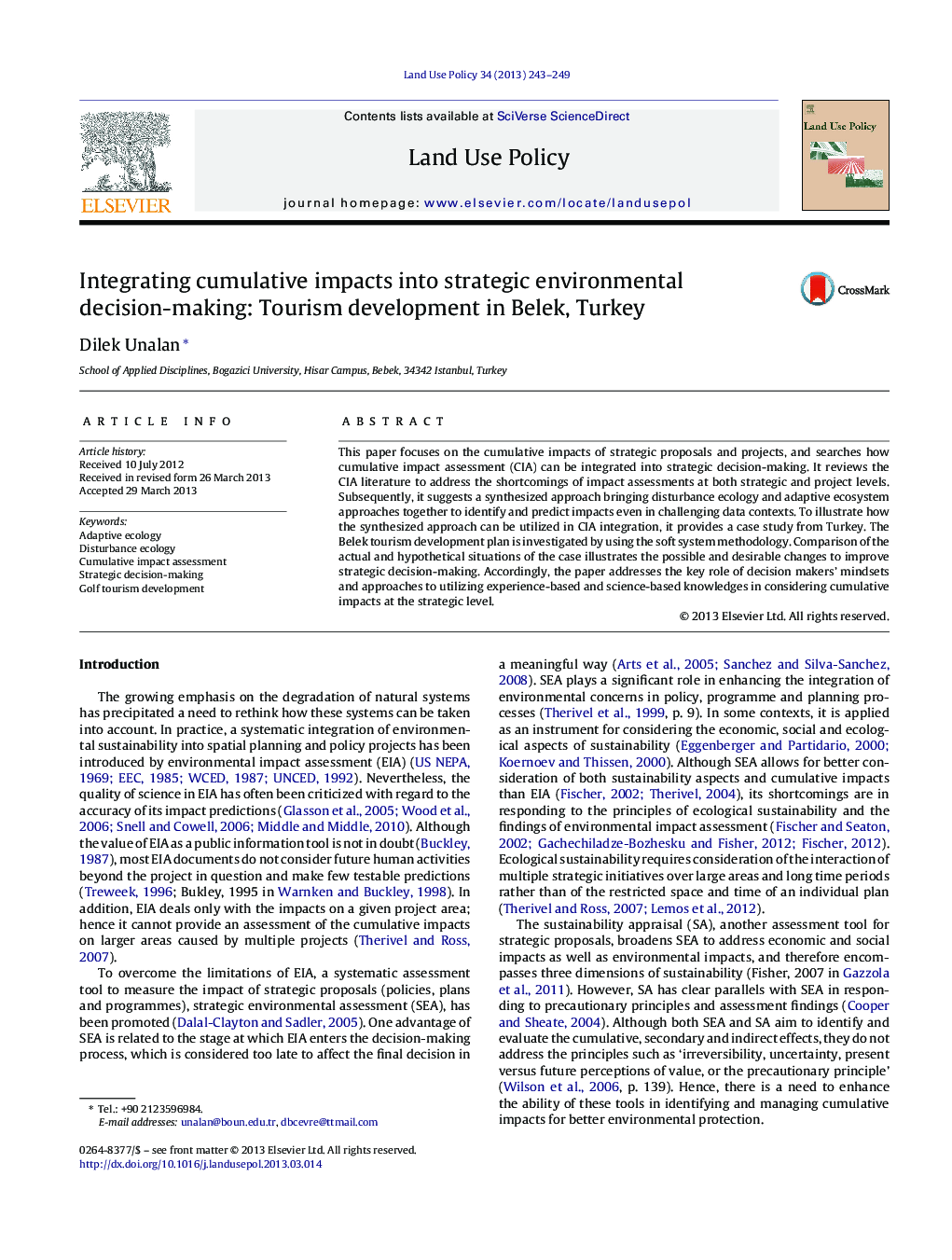| کد مقاله | کد نشریه | سال انتشار | مقاله انگلیسی | نسخه تمام متن |
|---|---|---|---|---|
| 93223 | 160117 | 2013 | 7 صفحه PDF | دانلود رایگان |
• Multiple strategic proposals and projects are not considered in the existing assessment tools of socioecological impacts.
• Stakeholder engagement provides valuable information on a given area.
• Experience-based traditional knowledge can be used to support strategic decisions in poor data conditions.
• World-views and policy approaches of policy-makers is the key factor in taking cumulative impacts into account in challenging contexts.
This paper focuses on the cumulative impacts of strategic proposals and projects, and searches how cumulative impact assessment (CIA) can be integrated into strategic decision-making. It reviews the CIA literature to address the shortcomings of impact assessments at both strategic and project levels. Subsequently, it suggests a synthesized approach bringing disturbance ecology and adaptive ecosystem approaches together to identify and predict impacts even in challenging data contexts. To illustrate how the synthesized approach can be utilized in CIA integration, it provides a case study from Turkey. The Belek tourism development plan is investigated by using the soft system methodology. Comparison of the actual and hypothetical situations of the case illustrates the possible and desirable changes to improve strategic decision-making. Accordingly, the paper addresses the key role of decision makers’ mindsets and approaches to utilizing experience-based and science-based knowledges in considering cumulative impacts at the strategic level.
Journal: Land Use Policy - Volume 34, September 2013, Pages 243–249
